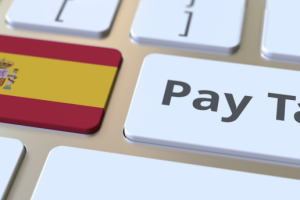Nigeria: Restrictions to Monetization of Intellectual Property Rights
Introduction
When entrepreneurs seek to extract value from their undertakings, several issues are given principal and frontal consideration. One of those issues is strategic monetization of intellectual property rights (IPRs) created by or belonging to an undertaking or upon which its services are sold and known. Often times those IPRs can also coincide with the ‘business brand’ thereby becoming equated with the product or service.
This paper offers some insights as to the IP monetization models and factors to be borne in mind by a party desirous of consummating a transaction involving intellectual property rights in Nigeria.
IP monetization/commercialization models
There has been increased recognition and commercialization of IP assets in recent times. IP commercialization refers to the act of using intellectual property (IP) to generate revenue. A well-planned commercialization strategy can generate considerable financial and strategic value for an IP owner. One of the simplest means of IP commercialization is commercial sale (assignment) but the most common and widely used commercialization model is licensing. Other commercialization models involve contribution of IP to a joint venture for co-development and shared benefit; securitization and collateralization.
IP licensing is the term used to describe a legal relationship whereby an IP rights owner (“licensor”) authorizes another (“licensee”) to use the rights for an agreed period of time in exchange for monetary value in the form of a fee or a royalty, or both. Being the most common IP commercialization model, it exists in different forms.
Forms of IP licensing
Franchising is a specialized license where a franchisee is allowed by the franchisor in return for a fee to use a particular business model and is licensed a bundle of IP rights, notably, trademarks and supported by training, technical support and mentoring. When a business model is successful and replicable at other locations, permitting interested third parties to set up independent businesses based on a proven business model along with its attendant trademarks, know-how and other intellectual property rights (such as designs, patents and copyright), has proven to be an enormously successful and rapidly growing trend. A ready example is the Domino’s Pizza outlets, which exists in various parts of Nigeria today.
Merchandising is the licensing of trademarks, designs, artworks as well as fictional characters (protected by these rights) and real personalities. It entails allowing manufacturers of ordinary consumer goods to apply on their products the trademark of another, which immediately adds appeal to an otherwise commonplace object, and distinguishes manufacturer’s products in the market place. The endorsement of Oraimo electronic gadgets by Tu Face Idibia a popular Nigerian Artiste is a very good example of this type of licensing.
Co-branding/Branding Partnership is a form of licensing arrangement under which an IP owner with a very high reputation assists other upcoming brands to increase brand exposure, break into new markets, and add extra value to products/services.
IP commercialisation (Assignment and Licencing) is recognised under the various Nigerian IP legislation – Trademarks Act; Patent and Designs Act; Copyrights Act.
Benefits of IP monetization
In the hands of well-informed, astute business people, and in support of a sound business strategy, investment in IP can produce good returns. IP monetization has numerous benefits to an IP owner. It generates a passive income for the IP owner, without any significant overheads. An IP owner can license the use of the IP to as many users or licensees as he/she wishes and thereby creating additional revenue streams.
IP monetization also enables businesses to enter new markets or industries. Allowing a company in a different country or region to manufacture goods or provide services to which the right to apply a company's trademark is granted through an IP license agreement allows a company to expand into that territory. In summary, IP monetization creates new business opportunities for licensors and licensees.
For many companies, licensing of their IP is less about revenue and more about increasing customer recognition. The more the IP is used the greater the recognition of the brand. In addition, collaborating through licensing creates efficiencies and sharing of common costs such as advertising and promotion costs.
Lastly, IP monetization provides the potential for better marketing. Through IP licensing, a company may team up with another partner to benefit from that others’ manufacturing, distributing, sales or marketing capacity thereby obviating or reducing the costs associate with developing such capacity within its own establishment.
Regulatory considerations in IP monetization or commercialisation in Nigeria
Cross-border IP transactions in Nigeria require the regulatory oversight of certain public agencies. Apart from the institutions directly charged with the administration of the respective IP legislations, a few other agencies wield some level of influence that may affect the validity of IP transactions in Nigeria.
The National Office for Technology Acquisition and Promotion (NOTAP)
NOTAP was established by the NOTAP Act. The Act saddles NOTAP with the responsibility of approving and registration of all contracts or agreements for the transfer of foreign technology to Nigerian parties. Every such contract or agreement shall be registrable if its purpose or intent is in connection with the use of trademarks, as well as patents, technology plants and technical expertise. The consequences of non-registration is that no payment shall be made in Nigeria to the credit of any person outside Nigeria by or on the authority of the Federal Ministry of Finance, the Central Bank of Nigeria, or any other licensed Bank in Nigeria in respect of any payments due under such a technology transfer agreement.
It is also a requirement that parties to IP transactions comply with the NOTAP and Central Bank of Nigeria (CBN) approved fee threshold. NOTAP has an approved range of fees/royalties that Nigerian licensees can pay foreign owners and licensors for use of licensed commercial and industrial intangible property rights (IP rights). The implication of this arrangement is that notwithstanding the agreement between an IP owner and a Nigerian based licensee as to royalties or license fees, the sums payable shall not exceed the NOTAP fee threshold.
Taxation of IPR transactions & the Federal Inland Revenue Service (FIRS)
The FIRS superintend corporate taxes and the FIRS keenly seeks to enforce compliance within the Nigerian polity. To appreciate the role of this institution in relation to IP transactions in Nigeria, the following foundation is necessary.
Generally, returns from IP monetization take the form of royalties or licence fees. Under general accounting principles, assignors and licensors of IP recognize assignment fees and license fees respectively as income in their statement of comprehensive income. Whilst assignment fees paid by assignees are capitalized in the books and subsequently subject to amortization over the years, licensees recognize license fees as expenses in their statement of comprehensive income. These recognitions have different treatments under the fiscal regime.
Under Nigerian tax rules, income from assignment of IP assets is subjected to capital gains tax while income from IP licensing may be subject to companies’ income tax. License fees and royalties payment are expenses, which are allowable for tax purposes by FIRS.
Whilst the FIRS recognises well-managed IP movements as part of corporate tax planning strategy, it on the other hand disallows the propensity for businesses to use IP as a profit shifting strategy. This necessitated the enactment of the Income Tax (Transfer Pricing) Regulations to control the indiscriminate act of taxpayers’ (related entities) use of IP to erode the tax base.
A Nigerian company entering into an IP license agreement with its foreign Holding company must be prepared to comply with the requirements of the Regulations. The fate of unrelated parties in an IP transaction does not come within the scope of the Regulations. However, FIRS is wont to beaming its searchlights on transactions, which purport to reduce taxable profits of companies. While related parties in an IP transaction are as a matter of necessity required to adduce proof of the valuation methods used and analysis performed in determining royalty rates, fees and commissions paid for licensed IP rights, the obligation abates in relation to non-related entities. However, it would be more prudent for non-related entities envisaging an IP transaction to pre-empt the tax authority and have sufficient documentary justifications.
Conclusion
As highlighted above, the restrictive band of fee or royalty rates for IP rights recognized by both CBN and NOTAP that may in certain instances be at variance with the true commercial values of IP rights thus preventing IP owners from obtaining appropriate returns on the true commercial and economic value of their licensed IP rights. FIRS may also require that IP licensees provide justification for outward remittances to foreign IP licensors.
It is submitted that the foregoing limitations can be overcome with appropriate transaction analysis and documentation, thus allowing IP owners fully reap the fruits of their labour. Foreign owners and licensors of IP rights usable in Nigeria are advised to seek expert opinion on the most viable option for optimum exploitation or monetization of their IP despite the aforementioned restrictions.
Abiodun ADENEKAN ACTI
Associate
Aliant Qais Conrad Laureate (UIAAdvance Member)
Lagos- Nigeria
aadenekan@aliantlaw.ng
Florence ATULUKU ACIS, FICMC
Partner
Aliant Qais Conrad Laureate (UIAAdvance Member)
Lagos – Nigeria
fatuluku@aliantlaw.ng






